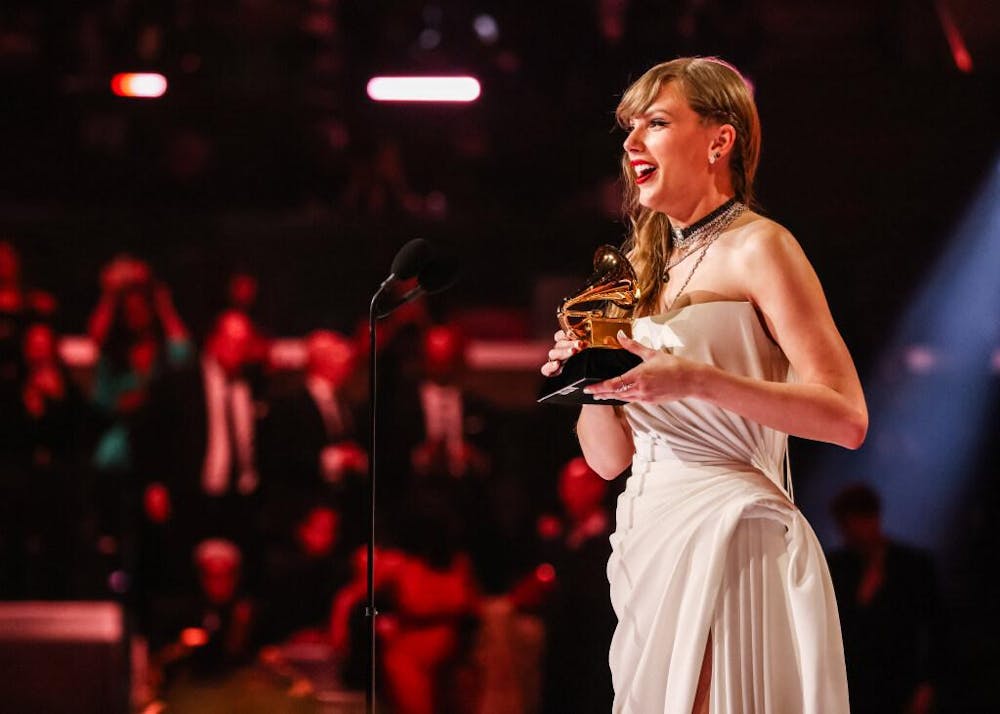As a self-proclaimed pop culture enthusiast, I spend a lot of time listening to music, reading, watching TV and consuming all the information I can about my favorite celebrities. And, in my consumption of media, I’ve come to idolize more than a few famous people. If an artist makes good music, is charismatic and offers some sort of relatability in their work, I’m hooked.
Almost every single artist I’ve ever loved, however, has done something unethical or immoral at some point in their careers.
Despite the simple fact that celebrities do bad things sometimes, a great number of fanbases condemn any criticism against their beloved artists. Taylor Swift fans, Kanye West fans and Nicki Minaj fans, to name a few, all represent large fanbases which refuse to hold their favorite artists accountable and bully anyone who does. But celebrities are in a position of immeasurable power, so why do fans take it so personally when they are criticized?
When a celebrity's character is attacked, it can also feel like a threat to the fans who adore them. The use of the celebrity to construct one's self-identity is rooted in online fandom culture, where people build connections based on what they consume. A report from the National Library of Medicine says “people lacking a clear sense of self become absorbed with celebrities to attain a more complete identity.” It’s this weird parasocial dynamic that leads fans to defend celebrities as if they are extensions of themselves. The refusal to criticize a celebrity, however, is incredibly harmful.
Idolizing a celebrity to the point where they can do no wrong takes away their humanity and perpetuates a power structure that tells rich and famous people it’s okay if they do questionable things. But no one person is entirely good nor entirely bad. By holding celebrities accountable, fans can encourage the artists they love to own up to their actions and make a conscious effort to do better.
Amidst waves of social activism last decade, comedy fans, for example, criticized a number of famous comedians whose older jokes made fun of marginalized groups. After facing backlash from audiences, multiple comedians made efforts to apologize for their offensive jokes and take accountability. While criticism can end in positive change, not all fans are willing to critique their favorite celebrities.
Diehard Taylor Swift fans — or Swifties, as they’re colloquially called — are especially notorious for refusing to critique their beloved idol. As a Swiftie myself, I’ve observed a good number of fellow fans race to Swift’s defense when she is called out yet again for her massive carbon footprint.
In 2022, sustainability marketing firm Yard reported Swift as the number one celebrity carbon dioxide polluter with the use of her private jet. The agency said Swift had amassed 1,184.8 times more than the average person's annual carbon emissions at the time the report was published. Yard also said her shortest flight in 2022 was a 36 minute ride from Missouri to Nashville. Now, I love Swift and do believe her frequent use of a private jet is in some ways an effort to ensure she is secure, safe and keeping up with her time commitments as a celebrity, but choosing to fly for 36 minutes rather than travel by car across states is absolutely ridiculous when it’s so much more environmentally conscious to drive.
Rather than admit Swift should take accountability for her pollution, a lot of Swifties attempt to distract audiences from her emissions by noting other celebrities who do the same thing. Sure, most rich celebrities are also going to take needless trips on their private jets, but all this rhetoric does is prove that we should criticize all the celebrities who contribute to pollution, including Swift.
It’s also important to note how Swifties race to defend the global pop star in the name of feminism. It’s true that for years, critics have thrown waves of misogynistic vitriol against Swift in their judgments of her dating life, anger surrounding her presence at Kansas City Chiefs football games and questioning of her overall success. But to say that all criticism against her is inherently sexist does a disservice to feminism itself. If, as Swift said to Maxim in 2015, “feminism is probably the most important movement that you could embrace because it's just basically another word for equality,” then shouldn’t we hold her accountable for her actions just as we do any other public figure in a position of power?
At the end of the day, the celebrities we love and adore are not perfect. If fans treat them like they are untouchable, all it does is facilitate a culture in which the rich, famous and privileged can do questionable things and get away with it. Fostering open criticism of celebrities can encourage real social change and aid in shattering the power structures we all live in.
Erin Stafford (she/her) is a senior studying journalism with a minor in English.






